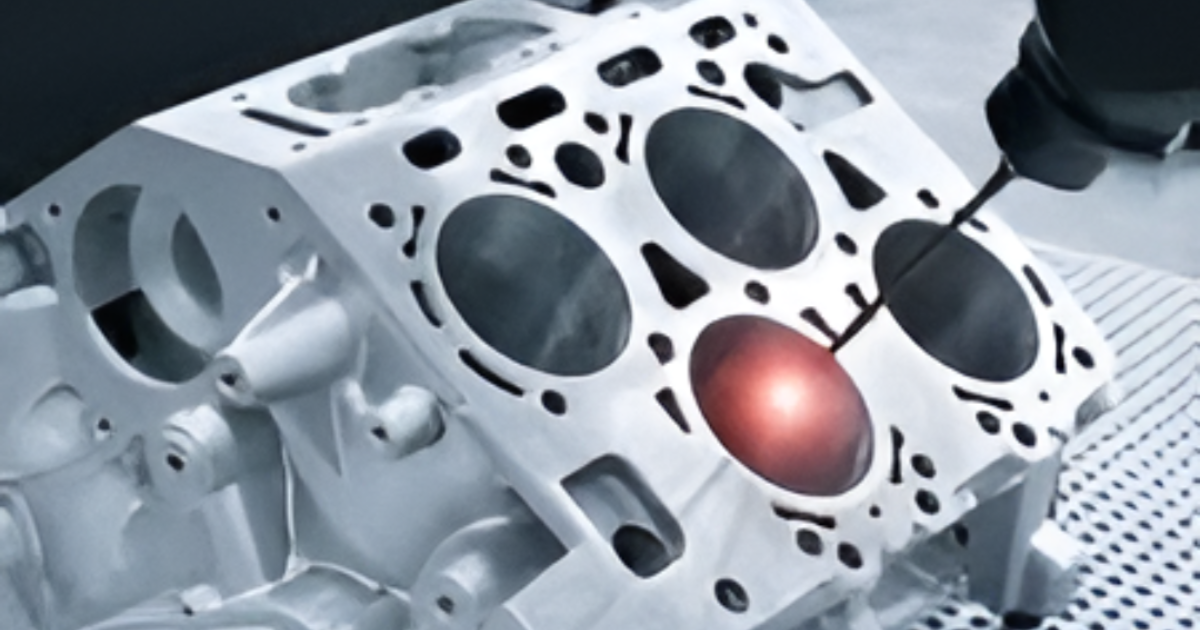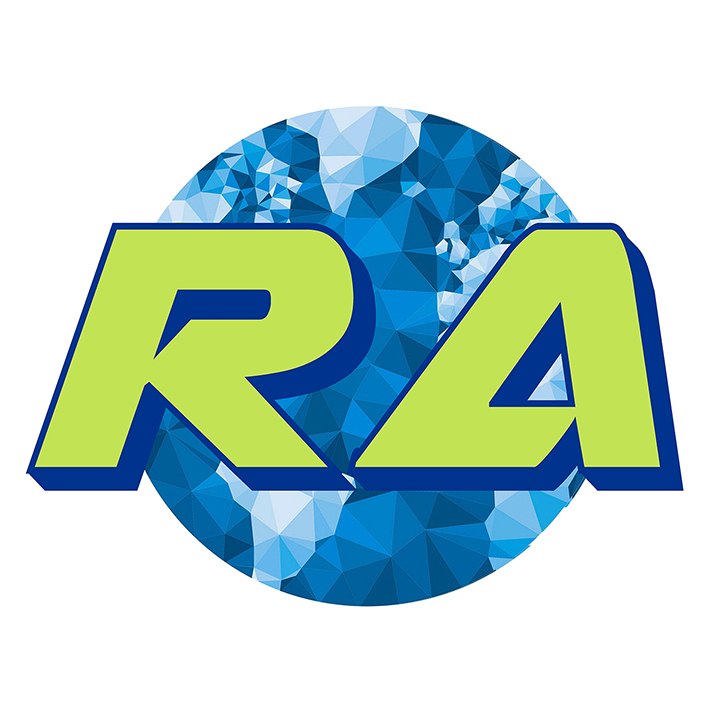CMM Inspection Services
What are CMM inspection services?
A coordinate measuring machine is a sophisticated device that uses a robotic arm attached to a gantry to capture precise measurements of an object's surface. The CMM's ruby-tip probe touches the surface, collecting data points along the X, Y, and Z axes, which are then recorded within specialized software. This provides a detailed understanding of the object's geometrical features, allowing for accurate analysis and inspection. Unlike traditional methods, CMMs offer non-invasive examination, high accuracy, and versatility in measuring objects of varying sizes. The precise measurements enable users to virtually replicate the object, making CMMs ideal for quality control, reverse engineering, and inspection applications.
Key Aspects of CMM inspection services:
- Precision and Accuracy: CMM inspection ensures that manufactured parts meet stringent specifications and tolerances, reducing defects and errors.
- Types of Measurements: CMMs can measure dimensions, angles, and geometric characteristics of parts using various probing devices, such as mechanical probes, laser scanners, or optical sensors.
- Process: The CMM inspection process involves preparation, programming, measurement, data analysis, and reporting, ensuring that parts meet required specifications and tolerances.
- Equipment and Technology: CMMs come in various configurations, including bridge, cantilever, and articulated arm styles, each suited for specific manufacturing environments and applications.
Why are CMM inspection services important?
CMM inspection services are crucial for ensuring product quality, reliability, and safety. They provide high-accuracy measurements, reducing errors and defects, and enable manufacturers to produce high-quality products that meet design specifications and quality standards. By identifying defects early, CMM inspection helps reduce scrap, rework, and warranty costs, minimizing the risk of product failures, recalls, and liability claims. Industries like aerospace, automotive, medical devices, and industrial manufacturing rely on CMM inspection to ensure compliance with stringent safety and performance standards. Overall, CMM inspection services play a vital role in improving product quality, reducing costs, and enhancing customer satisfaction.
What are the common challenges in CMM inspection services?
CMM inspection services face several challenges, including inspecting complex geometries and shapes, managing measurement uncertainty, and dealing with surface finishes that can affect accuracy. Additionally, part fixturing, data analysis, and operator skill are crucial to ensure accurate results. Equipment calibration, environmental factors like temperature and humidity, and data management also pose challenges. Furthermore, integrating CMM inspection with manufacturing processes and quality control systems can be complex. Addressing these challenges requires expertise, advanced technology, and robust process control to ensure reliable and accurate inspection results.

Related Services
- Reverse Engineering: Creating a digital model of an existing part or product using CMM inspection data.
- Quality Control: Providing inspection services to ensure parts meet design specifications and quality standards.
- Dimensional Inspection: Measuring and verifying the dimensions of parts and products using CMM technology.
- Geometric Dimensioning and Tolerancing: Analyzing and interpreting GD&T specifications to ensure parts meet design requirements.
- 3D Scanning: Capturing detailed 3D data of parts and products using laser scanning or other technologies.
- Inspection Reporting: Providing detailed reports of inspection results, including data analysis and recommendations.
The Process
The CMM inspection process typically involves the following steps:
- Part Preparation: Cleaning and preparing the part for inspection.
- Setup and Alignment: Mounting the part on the CMM machine and aligning it with the machine's coordinate system.
- Programming: Creating an inspection program to guide the CMM machine's measurement process.
- Measurement: Collecting data points on the part's surface using a probe or sensor.
- Data Analysis: Analyzing the collected data to determine the part's dimensions, shape, and other geometric characteristics.
- Comparison to Specifications: Comparing the measured data to the part's design specifications and tolerances.
- Reporting: Generating a report detailing the inspection results, including any deviations from specifications.
- Evaluation and Decision: Evaluating the results and making decisions about the part's quality, usability, and any necessary corrective actions.
CMM Machine Components
A Coordinate Measuring Machine (CMM) consists of several essential components that work together to ensure accurate measurements.
- Probe: The probe is responsible for taking measurements and is typically made of a hard, rigid material like ruby or zirconia. Various tip shapes allow for stability and accuracy.
- Granite Table: The granite table provides stability, resistance to temperature effects, and minimal wear and tear, ensuring consistent and accurate measurements.
- Fixtures: Fixtures hold parts in place during measurement, preventing movement and errors. Common fixing tools include fixture plates, clamps, and magnets.
- Air Compressors and Dryers: These components are standard in many CMM machines, including bridge and gantry-type machines.
- Software: The software plays a crucial role in analyzing probe data and ensuring accurate measurements, although it's not a physical component.
What are the applications of CMM inspection services across various industries?
- Aerospace: Ensuring the quality and accuracy of aircraft components, such as engines, wings, and landing gear.
- Automotive: Measuring and analyzing automotive parts, including engine components, transmission parts, suspension systems, and plastic molded interior components.
- Medical: Verifying the accuracy of medical equipment, such as surgical tools, drug delivery equipment, prosthetics, and dental implants.
- Manufacturing: Inspecting various products, including consumer goods, electronics, and industrial equipment.
- Defense: Providing precision measurement and inspection services for defense-related components and equipment.
- Space Flight: Ensuring the quality and accuracy of components used in space exploration.
- Industrial Equipment: Inspecting and measuring industrial equipment, including CNC machined parts, to ensure precision and quality.
- Speed: CMMs enable quick arrangement and rapid measurement capture in three dimensions, streamlining the inspection process
Why Choose RA Global?
At RA Global, our CMM inspection services utilize advanced technology to capture precise and detailed digital data for part inspection. Our team of experienced engineers and technicians leverages state-of-the-art CMM machines to deliver high-accuracy measurements and analysis. We offer CMM inspection services, utilizing advanced technology to capture precise and detailed digital data for part inspection. Our Coordinate Measuring Machine services cater to various industries, providing high accuracy and cost-effective solutions.
- Expertise: We have experienced professionals with specialized knowledge in CMM inspection, ensuring high-quality services.
- State-of-the-art equipment: We utilize advanced CMM technology, enabling precise and accurate measurements.
- Industry experience: We have worked with various industries, including aerospace, automotive, and medical, providing tailored solutions.
- Quality control: We have robust quality control processes in place, ensuring reliable and consistent results.
We utilize Coordinate Measuring Machines to ensure the dimensional accuracy of our manufactured goods. By combining high-quality manufacturing with precise CMM inspection services, we guarantee that our products meet design specifications and exceed customer expectations, particularly for large-sized parts used in critical applications.
Frequently Asked Questions
What is a CMM, and how does it work?
CMM stands for Coordinate Measuring Machine. It's a computer-controlled device that measures the physical dimensions of an object with high accuracy. A probe touches the object's surface, and the machine calculates the object's position and dimensions based on the data received.
What industries benefit most from CMM inspection?
Industries that rely heavily on precision and accuracy, such as aerospace, automotive, medical device manufacturing, and electronics, often utilize CMM inspection services.
What types of parts can be inspected using a CMM?
CMMs can be used to inspect a wide variety of parts and components, from small, intricate pieces to large, complex assemblies. The size and type of CMM will determine the maximum size and complexity of parts that can be inspected.
What are the benefits of using CMM inspection services?
CMM inspection services ensure products meet design specifications, leading to improved quality, reduced rework, and increased customer satisfaction. They also help in identifying potential manufacturing defects early on, minimizing costly issues later in the production process.
What is the difference between a portable CMM and a stationary CMM?
Portable CMMs offer flexibility and can be brought to the part for inspection, while stationary CMMs are typically housed in a dedicated space. Portable CMMs are useful for on-site inspections or for measuring large parts that cannot be easily moved.

